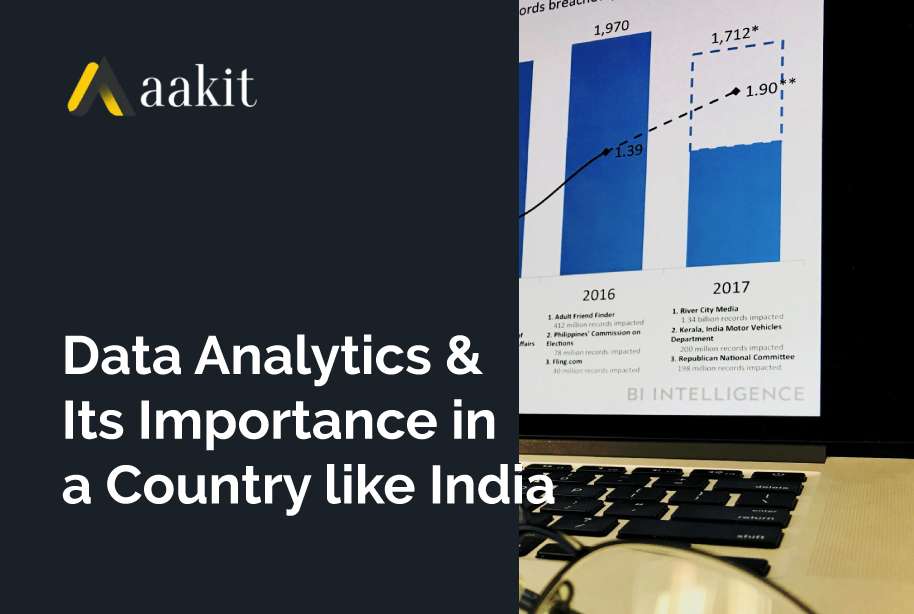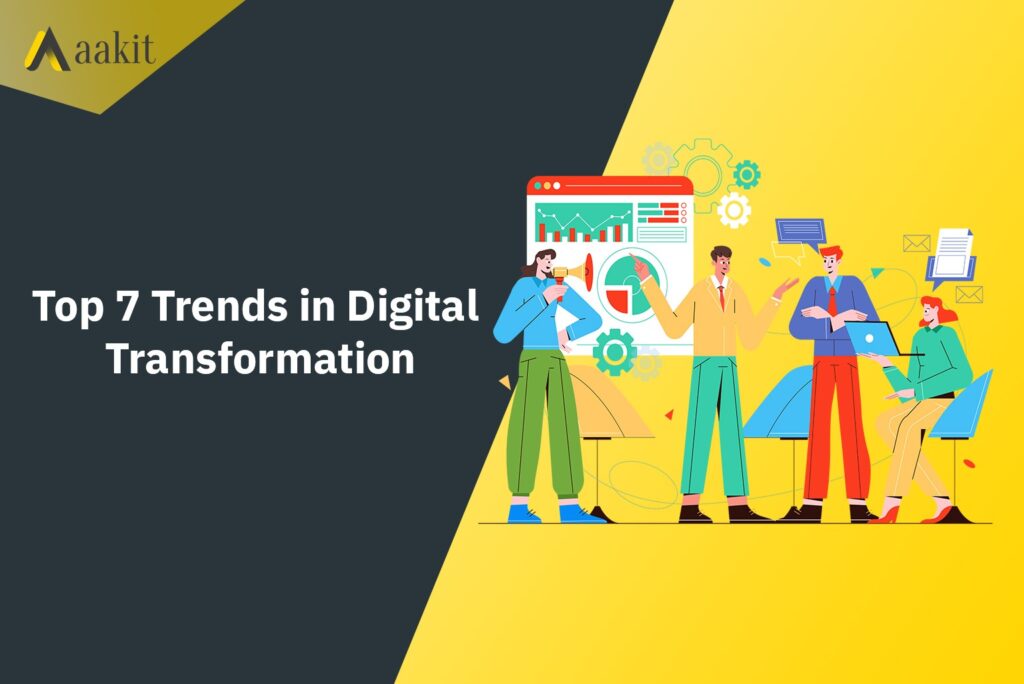Today, with digitization being central to every aspect of business, the volume of data generation is enormous. Leveraging the data collected is necessary to keep up with market demand and staying attuned to evolving customer expectations.
Let’s deep dive into the benefits of data analytics and the best practices to becoming a data-driven organization.
The Benefits of Data Analytics
Personalise the Customer Experience
66% of customers expect companies to understand their needs and expectations. Data analytics has changed the way brands connect with customers. For instance, Artificial Intelligence and [AI] and Machine Learning [ML] are bridging the gap between the high-volume of data being generated and the proficiency in leveraging the data to engage customers in real-time. Companies can now examine data points in real-time to anticipate market fluctuations and their customers in context.
Businesses can gain end-to-end visibility into the customer journey by analyzing transaction data, past purchases, omnichannel insights, market trends, and environmental conditions. Ranging from marketing to product development data analytics when done properly ensures continuous improvements.
Maintain Relevance
High quality data is increasingly crucial to enable companies update their current products while working on new ones. Collecting large volumes of data allows businesses to discern what works for their target demographic.
The age of instinct driving a company is long gone. Today, data analytics allows organizations to track customer feedback, product success, and what their competitors are up to. All of these help in building sound strategies to stay ahead.
Informed decision-making
Data analytics is a great asset to smart strategy and minimizing financial losses. This will be of immense help in a country like India. Predictive analytics can look for patterns in response to market changes while prescriptive analytics can predict how the business should adapt to these shifts.
For instance, changes to product offerings can be A/B tested to confirm the predictions produced by these models. Upon compiling sales data on the modified products, businesses can leverage data analytics to determine the outcome of the changes. These can also be visualized to help decision-makers choose if or when they choose to go ahead with them.
Streamlined Workflow
Data analytics is incredibly useful in optimizing the workflow. Collecting and analysing data about the supply chain can determine where production delays and bottlenecks arise. Data analytics can further predict where potential problems may surface. For instance, if a demand forecast indicates that a certain vendor will be unable to handle the quantity required for the holiday season, the business could choose to supplement or substitute this vendor to evade production delays.
Businesses, big and small, struggle with inventory management. Data analytics can help estimate the optimal supply for miscellaneous products based on factors such as seasonality, vacations, and secular trends. Data analytics works to streamline and provide visibility into the supply chain by tracking the release of products through data retrieval minimizing losses. This will ensure the inventory is well stocked and teams are aware of what products are running low.
Mitigate Risk
The pandemic has proved that risk management is essential to survival. A risk management plan is vital, regardless of the domain or industry. Being able to anticipate potential risk and mitigating is essential to remain profitable.
Data analytics works in developing sound risk management solutions through intelligent strategy. Additionally, data analytics works by eliminating guesswork through a range of techniques and technologies. This allows insights to be inferred, likely scenarios to be calculated, and potential future risks to be predicted proving to be especially in a country like India.
Best practices for becoming a data-driven organisation
Becoming a data-driven organization is no longer optional. In a country like India with regional markets each having different preferences and diverse market trends, it is essential to priortize data analytics. Here is a simple guideline that can be followed:
Clearly define your data strategy
Ranging from optimising production, improving data accessibility, to personalising products and services a clearly defined data strategy helps achieve business goals. Companies can begin by defining the outcomes and results they are hoping to accomplish from data transformation. This will help devise a strategy to achieve business goals using the various analytics tools available through the high quality datasets available.
Enable a culture of data
Successful companies and disruptors today are open to learning from data. This means they go beyond just using tools or terminologies, but are willing to foster a data culture in their companies. Data analytics is not just a term used in presentations, but what they learn from the data is put into practice. Enabling a culture of data begins with the leadership dedicated to guiding and sustaining any organization-wide changes.
Structure leadership
Robust leadership support is crucial for data transformation. This starts with the reporting framework. Today, the digital landscape is seeing data traverse within organisations. There are teams and personnel directly reporting to the CFO. This allows teams to work without silos, mediate conflicts easily, and achieve goals faster.
Cultivate a sound talent strategy
Up-skilling existing employees is necessary for in-demand data professionals to focus on mission-critical tasks. This allows experts to work in data analysis. Additionally, enterprises within a legacy framework need to develop an approach for attracting and retaining talent for data transformation and analysis.
Ensure easy data access
A major pain point within organizations today is their ability to scale and make the data accessible and available within a budget. Centralized access to data allows teams dispersed around the globe to work seamlessly. This means data needs to be categorized logically within a user-friendly platform that allows personnel to use, analyze, and be empowered through the information gleaned with minimal intervention from the IT department.
The Road Ahead
The pandemic has only accelerated the digital transformation journeys of various companies across industries. Generating business value from data through analytics is no longer optional, but a strategic imperative. However, in India, with legacy systems at every turn, this status quo is often a result of the prevailing culture.
Leaders today need to reevaluate existing business operations to take on the recurring micro-changes to become future-ready. Companies today have figured out that to maintain relevance in today’s digital landscape, access to real-time information is essential for strategy.



